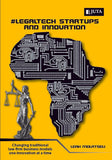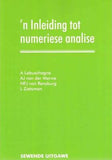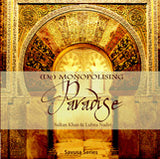
Upgrading informal settlements: Pursuing a partnership-based
About this Publication:
More than 1.2 million households in South Africa live in informal settlements, without access to adequate shelter, services or secure tenure. There has been a gradual shift to upgrading these informal settlements in recent years, and there have been some innovative experiments. Upgrading Informal Settlements in South Africa: a partnership-based approach examines the successes and challenges of informal settlement upgrading initiatives in South Africa and contextualises these experiences within global debates about informal settlement upgrading and urban transformation. The book discusses:
- The South African informal settlement upgrading agenda from local, national and international perspectives
- South African ‘city experiences’ with informal housing and upgrading
- The role of partnerships, actors and capabilities in pursuing an incremental upgrading agenda
- Tools, instruments and methodologies for incremental upgrading
- Implications of the upgrading agenda for the transformation of cities
The book has been written and edited by a wide range of practitioners and researchers from government, NGOs, the private sector and academia. It covers theory and practice and represents a vast accumulated body of housing experience in South Africa.
Contents Include:
- Introduction (Liza Cirolia, Tristan Görgens, Mirjam van Donk , Warren Smit and Scott Drimie)
- Informal settlement upgrading: International lessons and local challenges (Warren Smit)
Section one – Grappling with Informality and Upgrading: A City Scale
- Pressures on practice: How RDP housing and other factors have shaped informal settlement upgrading in eThekwini Municipality (Sarah Charlton and Neil Klug, University of Witwatersrand)
- The 'other half' of the backlog: (Re)considering the role of backyarding in South Africa (David Gardner and Margot Rubin, University of Witwatersrand)
- Enhancing the voices of the poor in housing (Felicity Kitchin, Community Agency for Social Enquiry (CASE))
- Adopting an incremental approach to informal settlement upgrading: The Johannesburg experience (Miriam Maina, University of Witwatersrand)
- ‘Public structure’: A starting point for incremental upgrading (Cedric Daniels, Liezel Kruger-Fountain, Berendine Irrgang, Marco Garetto, and Ancunel Steyn, City of Cape Town)
- An Uneasy Symbiosis: Mining and Informal Settlement in South Africa with reference to the Platinum Belt in North West Province – Margot Rubin and Philip Harrison.
Section TWO – Partnerships, Actors and Capabilities
- Creating ‘urban commons’: Towards a sustainable informal settlements upgrading paradigm in South Africa (Walter Fieuw and Baraka Mwau, Community Organisation Resource Centre (CORC) and Shack/Slumdwellers International (SDI))
- ‘Development from within’: Advancing a people-centred, partnership-based model for informal settlement development in the city of Johannesburg (Thabo Molaba and Zunaid Khan, City of Johannesburg)
- Who needs partnerships? An informal settlement upgrading partnership framework (Aditya Kumar and Johru Robyn, Community Organisation Resource Centre (CORC) and Stellenbosch Municipality)
- Incremental slum upgrading in Nairobi, Kenya: What can South Africa learn? (Olumuyiwa B. Adegun and Steve Ouma)
- Visualising process and the actors of change: Settlement upgrading in Duncan Village, East London (Kirsten Thompson)
- Rethinking incremental urbanism: co-production of incremental informal settlement upgrading strategies (Mark Swilling, Andreas Keller, Lauren Tavener-Smith, Vanessa van der Heyde, and Barry Wessels, Stellenbosch University)
- Facilitating state-community interfaces: the role of NGOs as intermediaries in participatory informal settlement upgrading in South Africa (Tristan Görgens, Isandla Institute)
- Navigating hostile territory? Where participation and design converge in the upgrade debate (Carin Combrinck and Jhono Bennett, University of Johannesburg and 1-to-1 Agency of Engagement)
Section THREE – Tools, Instruments and Methodologies
- Slum upgrading: community groups as principled agents (Robert Buckley, The New School, NYC)
- The role of the fiscal framework in shaping the informal settlement upgrading agenda (Nick Graham and Ian Palmer, Palmer Development Group)
- Using planning tools to enable informal settlement upgrading: identifying future opportunities for South African cities (Saskia Greyling and Stephen Berrisford)
- Courts as a site of struggle for informal settlement upgrading in South Africa (Kate Tissington and Michael Clarke, Social and Economic Rights Institute (SERI))
- Between a shack and an RDP house: managed land settlement (Ronald Eglin and Mike Kenyon, Afesis-Corplan)
Section FOUR – Implications for Urban Transformation
- From resilience to transformation (Ivan Turok, Human Science Research Council (HSRC)
- Strategic upgrading: Lessons from international critical practices (Alexandre Apsan Frediani and Barbara Lipietz, Development Planning Unit (DPU), University College London, and Stephanie Butcher)
- South Africa’s emerging national urban policy and upgrading agenda (Edgar Pieterse, African Centre for Cities (ACC), and Liza Cirolia, University of Cape Town)
- Conclusion: The way forward: forging a collective upgrading agenda (Warren Smit, Tristan Görgens, Liza Cirolia, Mirjam van Donk and Scott Drimie, Isandla Institute, African Centre for Cities)
Of Interest and Benefit to:
Urban planners and policy makers, government officials, urban and development consultants, NGOs, politicians, students (both undergraduate and postgraduate), and academics in the field of housing, governance, urban studies, informality, Southern cities, development, security and welfare.
We Also Recommend





